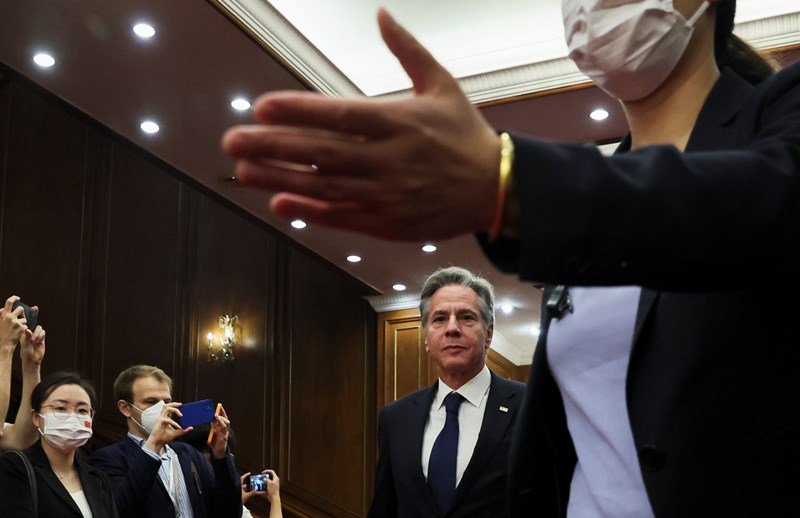US Secretary of State Antony Blinken will seemingly not be meeting President Xi Jinping during his visit to China despite media saying such a visit was not out of the question.
US Secretary of State Antony Blinken’s schedule for his trip to China does not include a meeting with Chinese President Xi Jinping, according to the schedule published by the State Department in light of the top US diplomat’s trip to Beijing.
Blinken landed in China on Sunday, marking his first visit to the country as Secretary of State and the first of an official in his position since 2018.
The visit was planned for February, but it had to be postponed after tensions with China forced Washington to suspend its plans.
The United States claimed that China sent a spy balloon over its airspace, with the US intelligence community claiming that the aerial object was part of a vast surveillance program of the Chinese People’s Liberation Army.
The balloon was flying over the North American Aerospace Defense Command on January 28, over Alaska, before it was found floating over missile sites in Montana. Days later, after tracking, the US decided to shoot it down over the South Carolina coast.
There were also several related incidents in the days that followed.
US media reported before Blinken landed in China that it was not known whether he was going to meet the Chinese President, noting that such a meeting was a possibility.
The US State Secretary’s schedule shows that he will be holding talks with former Chinese Foreign Minister and Central Foreign Affairs Office Director Wang Yi on Monday morning before partaking in a roundtable with exchange program students in Beijing, in addition to one with top US businessmen.
Blinken also plans to meet with the employees and families of Washington’s mission to China.
Blinken said on Friday that his visit aims to achieve three objectives: establish mechanisms to resolve disputes, advance the US and its allies’ interests, address Washington’s concerns directly, and discuss areas of common interests.
Relations between the two largest economies have deteriorated rapidly in the past years. The trade war on China, which was launched during former US President Donald Trump’s term, was stretched by Biden’s administration to include a military escalation against Beijing in the South China Sea, including violating the “one China” policy and deepening relations with Taiwan.
Biden’s administration also launched a tech offensive against China’s chip industry, bringing together its allies to join in on the efforts to curb the Asian giant’s developing semiconductor sector.
The conflict between the two countries also raised concerns over a possible military clash that might lead to an all-out world war.
Chinese Defense Minister Li Shangfu warned earlier this month that a potential confrontation between China and the US would be an “unbearable disaster” for the world.
“China and the US have different systems,” he acknowledged, arguing however that “this should not keep the two sides from seeking common ground and common interests to grow bilateral ties and deepen cooperation.”
He further indicated China’s willingness to maintain military discussions with the US under improved circumstances.
Source: Almayadeen



